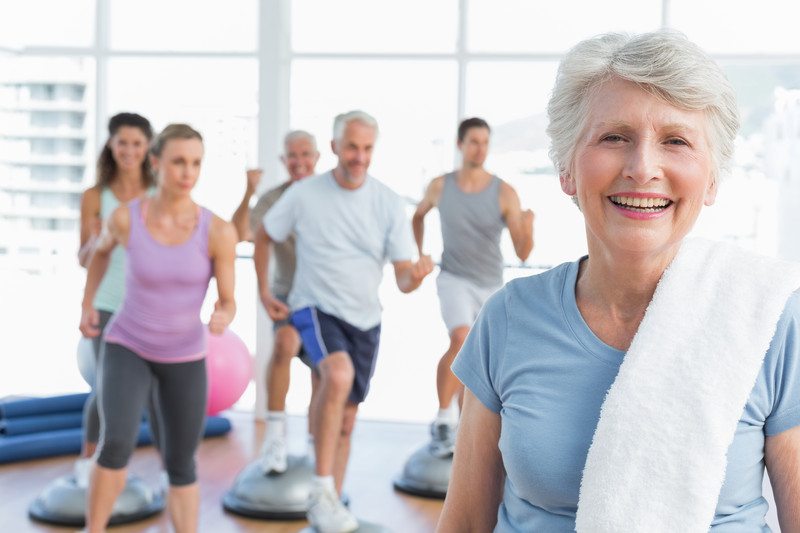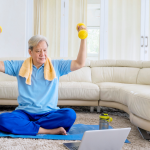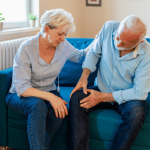It is widely known that dancing is a great physical exercise to keep your body in shape and have fun while doing it. Dancing ensures healthy longevity by significantly improving balance, endurance, and muscle strength.
Dancing not only improves physical health, but it helps your mind stay active as well. Dancing requires physical, emotional, mental, and social skills to work together, which benefits your brain and overall health. Research shows that dancing slows the aging process and improves cognitive function because it is an activity that requires multi-tasking.
Brain Health Benefits
Studies have proven that exercise is associated with preserving seniors’ cognitive function and abilities. In fact, a recent study from Frontiers in Human Neuroscience claims that dancing may be better than traditional fitness in terms of signs of aging.
This is because activities known as “sensorimotor demands” are required, which relate to movement or bodily activity triggered by sensory and motor impulses. These sensorimotor demands include holding your partner correctly, remembering dance steps, and synchronizing your movement with the music.
Dancing is also linked to a reduced risk of dementia and has been proven therapeutic for seniors with Parkinson’s disease. It alleviates certain motor symptoms associated with Parkinson’s like impaired coordination and balance, tremors, and stiffness.
Studies have shown that physical activity, such as dance, slows age-related degeneration in cognitive impairment and brain structure. The reason for this is because dancing requires both motor skills and thinking. It also strengthens your muscles, which reduces the risk of falls and causes better balance and posture.
Social Benefits
Dancing enhances our emotional, social, and mental wellbeing as well as promoting physical activity. It is a social activity and involves working with other people, which reduces feelings of isolation in many seniors.
The music, physical activity, and social interaction involved with dancing all help with stress management and motivation. It can also improve your overall mood based on increased levels of the hormone serotonin.
 There are different options for senior citizens based on their preferences and limitations. A dancing class is great for fun physical exercise with a partner. However, if you prefer to work out solo, you can also choose Zumba, jazzercise, or other exercises that heavily involve dancing. Either way, you will be engaging in your community and keeping your mind and body healthy.
There are different options for senior citizens based on their preferences and limitations. A dancing class is great for fun physical exercise with a partner. However, if you prefer to work out solo, you can also choose Zumba, jazzercise, or other exercises that heavily involve dancing. Either way, you will be engaging in your community and keeping your mind and body healthy.
Mental and Emotional Benefits
The art of dance assists with discipline, creativity, and focus, which allows seniors to sharpen their mental skills. It also helps develop self-esteem and self-confidence because of the link between emotional development and cognitive growth.
Additionally, studies have proven that dancing reduces anxiety because of its ability to get participants to feel less self-conscious in front of crowds. Dancing is often therapeutic to people with social anxiety because this allows them to also be less self-conscious when interacting with people during everyday life.
In many cases, people suffering from social anxiety or mental illness find it difficult to express themselves. Dance often serves as an artistic outlet for many people because it allows them to use their bodies to communicate feelings they couldn’t otherwise.
Much like with stress and anxiety, dancing also lowers levels of depression. According to a certain study, patients with depression showed a significant decrease in their depression once placed in regular dance programs. Loneliness and depression are common amongst seniors, especially those who live alone, which makes dance a fun and healthy hobby.
Contact Us
Millions of people across the country dance regularly, but most of them don’t realize the positive and healthy benefits to their bodies and brains. Dance has been proven to help with Parkinson’s disease, dementia, stress, anxiety, and depression. The activity also improves brain health and reduces feelings of loneliness among participants.
Contact us at (847) 595-1222 if you or your loved one struggle with dementia, Alzheimer’s disease, or physical limitations that make it difficult for you to do your favorite hobbies or everyday tasks.




